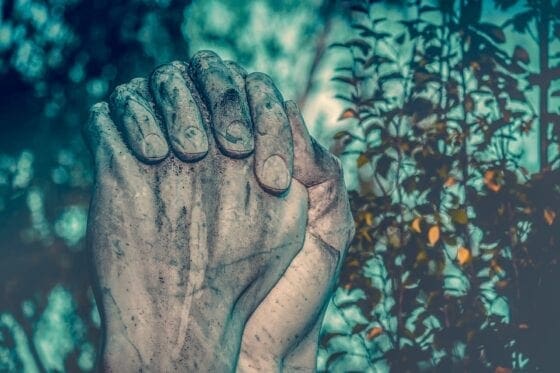It is not enough to say just that we are living in difficult times; these resemble those of other times. In France, in Europe, for example, we live amid an institutional depression, and against an ecclesial backdrop that is no less disrupted and broken. We even mention a “liquid society,” since its consistency appears unstable and fragile.

This is really the time of Providence. We are invited to go beyond appearances to let ourselves be directed by the God who leads our lives and calls for our trust. To move from a strong and proud institution to evangelical fragility is now being proposed as a way to God. This passage leads us to expect everything from Him and nothing from our human activities. And God loves dependent attitudes. When we possess everything as coming from ourselves, such as numbers, youth, strength, we expect nothing more from Him. When we are in poverty and refuse to count, we turn to Him and we know that He comes to our aid and accompanies us in all our distress.
Let’s meditate on the charter of confidence of the personal and ecclesial life of Matthew 6:25-33: “This is why I say to you: Do not worry about your life for what you will eat, nor for your body for what you will put on. Is not life more than food, and the body more than clothing? … Seek first his kingdom and his righteousness, and all this will be given to you besides. So do not worry about tomorrow: tomorrow will worry about itself. Each day has enough trouble of its own.”
We are invited to set aside our worries, anxieties, fears, and dismay. We can suffer and ask legitimate questions about it but remain anchored in God. Let’s avoid dwelling on the past, crying over the onions of Egypt, mourning like the exiles of Babylon. Let’s look at the beauty of the present: the internationalization of our companies, the inventiveness of small communities, the ever-present attention to the poor, the prophetic character of such people; let’s examine the signs of the times that are flourishing in the Church: the diocesan synods, the councils, the increasing availability of the laity, starting them up again, the baptized adults, etc. We have reasons for joy and confidence. Perhaps we can also look into popular wisdom: “Fluctuat nec mergitur“, “It floats but does not sink”, [the motto of the city of Paris]; “I bend but do not break” and always “The Spirit blows where it wills” ….
St. Vincent also invites us to look at an event as a locus of God’s revelation in our life. In addition, this invites us to be positive and to examine with a magnifying glass what constitutes the framework of our days: lived experience, encounters, births, sicknesses, deaths; plus smaller things like smiles, dialogues, joys, parties, etc. Any event, far from distracting the Spirit, is a bearer of God and manifests his will. The art of the saint, of the missionary, of the woman who serves the poor, and of all Vincentians, men and women alike, is to make their conduct mesh with God’s plan, to discover Providence at work in their life. This is a genuine art of living!
There is a certain Vincentian wisdom, born out of observation and the passage of time. “Time changes everything” (III, 390) remarks St. Vincent. We have to move through our lives following the rhythm of everyday life, hour after hour, day after day, by bowing in prayer (especially meditation) which allows us to understand the future in God. Let’s be sure of this: it will always move by fidelity to the present when animated by divine Providence.
Jean-Pierre Renouard cm
Province of France

